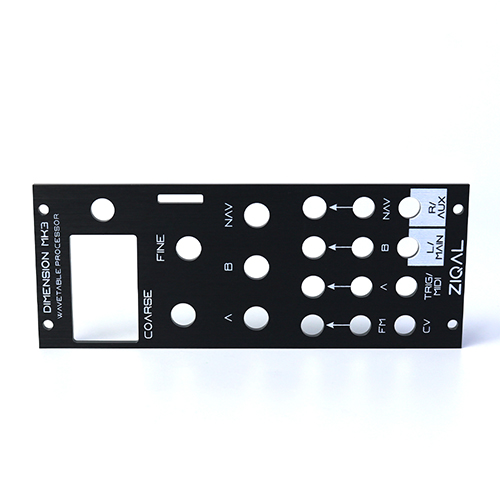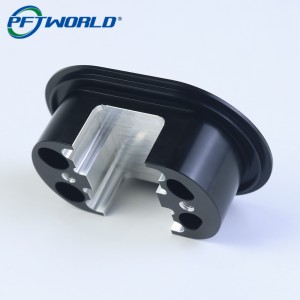CNC Laser Engravers
In the evolving world of manufacturing and fabrication, CNC laser engravers are playing an increasingly vital role. Combining precision, speed, and automation, these machines have revolutionized how we approach engraving and cutting tasks in machining processes. From industrial applications to small business and hobbyist uses, CNC laser engravers provide a unique blend of versatility and efficiency.

A CNC (Computer Numerical Control) laser engraver is a machine that uses a high-powered laser beam to etch or cut materials based on digital design instructions. These instructions are typically input via CAD (Computer-Aided Design) files and converted into precise movements through CNC programming.
The laser beam, guided by CNC controls, can engrave intricate patterns or cleanly cut through various materials including wood, plastic, leather, metal, glass, and more. Unlike traditional machining tools, CNC laser engravers offer non-contact processing, which reduces wear and maintenance while increasing the overall lifespan of the machine.
The process begins with a digital design. The user creates or imports a design into specialized software, which then converts the image or model into G-code — a CNC-compatible programming language. This code instructs the machine how to move the laser in X, Y, and sometimes Z directions.
The laser source, often a CO₂, fiber, or diode laser, emits a focused beam of light. When this beam contacts the material's surface, it either vaporizes, melts, or burns it, depending on the material and laser power. CNC control ensures high precision, making it ideal for detailed designs and fine text engraving.
1.Precision and Accuracy
CNC laser engravers can achieve tolerances within microns, enabling the creation of complex, detailed designs without tool marks or deformation.
2.Speed and Efficiency
Automated controls and high-speed lasers allow for rapid production without sacrificing quality.
3.Versatility
Suitable for a wide variety of materials, CNC laser engravers can be used in industries ranging from automotive and aerospace to art, jewelry, and signage.
4.Low Maintenance and Operational Costs
With fewer moving parts and no physical contact between the tool and material, these machines typically require less maintenance than traditional CNC mills or lathes.
5.Customization and Prototyping
Ideal for small-batch production and prototyping, CNC laser engravers make it easy to test, iterate, and personalize products.
CNC laser engravers are increasingly common in both large-scale manufacturing and small workshops. Some notable applications include:
●Industrial Part Marking: Permanent serial numbers, barcodes, and logos on metal components.
●Architectural Models: Precision-cut miniature structures from wood or acrylic.
●Electronics: Engraving circuit boards and cutting flexible materials like Kapton or PET.
●Jewelry Making: Intricate designs etched on metal or gemstone surfaces.
●Trophies and Awards: Personalized engravings on acrylic, glass, and metal.


We are proud to hold several production certificates for our CNC machining services,which demonstrates our commitment to quality and customer satisfaction.
1、ISO13485:MEDICAL DEVICES QUALITYMANAGEMENT SYSTEM CERTIFICATE
2、ISO9001:QUALITY MANAGEMENT SYSTEMCERTIFICATE
3、IATF16949、AS9100、SGS、CE、CQC、RoHS
● Great CNCmachining impressive laser engraving best Ive everseensofar Good quaity overall,and allthe pieces were packed carefully.
● Excelente me slento contento me sorprendio la calidad deias plezas un gran trabajo This company does a really nice job on quality.
● If there is an issue they are quick to fix itVery good communication and fast responise times
This company always does what I ask.
● They even find any errors that we may have made.
● We have been dealing with this company for a number of years and have always recelved exemplary service.
● I am very pleased with the outstanding quality or mynew parts.The pnce is very competiive and the custo mer service is among the best Ive ever experienced.
● Fast tumaround rabulous quality,and some of the best customer service anywhere on Earth.
Q1:How fast can I receive a CNC prototype?
A:Lead times vary depending on part complexity, material availability, and finishing requirements, but generally:
● Simple prototypes: 1–3 business days
● Complex or multi-part projects: 5–10 business days
Expedited service is often available.
Q2:What design files do I need to provide?
A:To get started, you should submit:
● 3D CAD files (preferably in STEP, IGES, or STL format)
● 2D drawings (PDF or DWG) if specific tolerances, threads, or surface finishes are required
Q3:Can you handle tight tolerances?
A:Yes. CNC machining is ideal for achieving tight tolerances, typically within:
● ±0.005" (±0.127 mm) standard
● Tighter tolerances available upon request (e.g., ±0.001" or better)
Q4:Is CNC prototyping suitable for functional testing?
A:Yes. CNC prototypes are made from real engineering-grade materials, making them ideal for functional testing, fit checks, and mechanical evaluations.
Q5:Do you offer low-volume production in addition to prototypes?
A:Yes. Many CNC services provide bridge production or low-volume manufacturing, ideal for quantities from 1 to several hundred units.
Q6:Is my design confidential?
A:Yes. Reputable CNC prototype services always sign Non-Disclosure Agreements (NDAs) and treat your files and intellectual property with full confidentiality.











